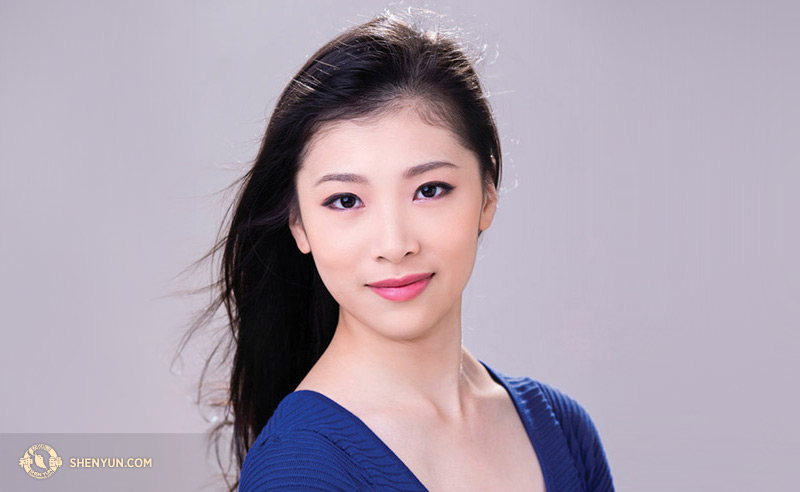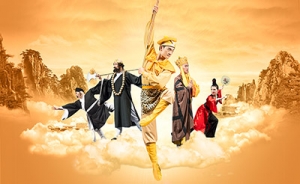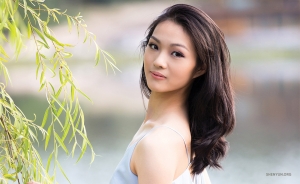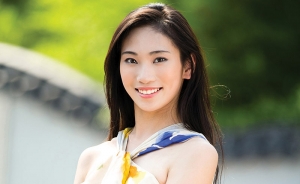Taste of Life Magazine is France and Canada's leading bilingual luxury lifestyle magazine in Chinese and English, dedicated to bridging East and West through a shared appreciation for the beauty and elegance rooted in both traditions.
In this past issue, TOL featured Shen Yun principal dancer Jane Chen. Chen has been with Shen Yun since 2014. She won first place in New Tang Dynasty Television’s International Classical Chinese Dance Competition (adult division) in 2018. Chen is currently touring with Shen Yun Global Company across the U.S. this season.
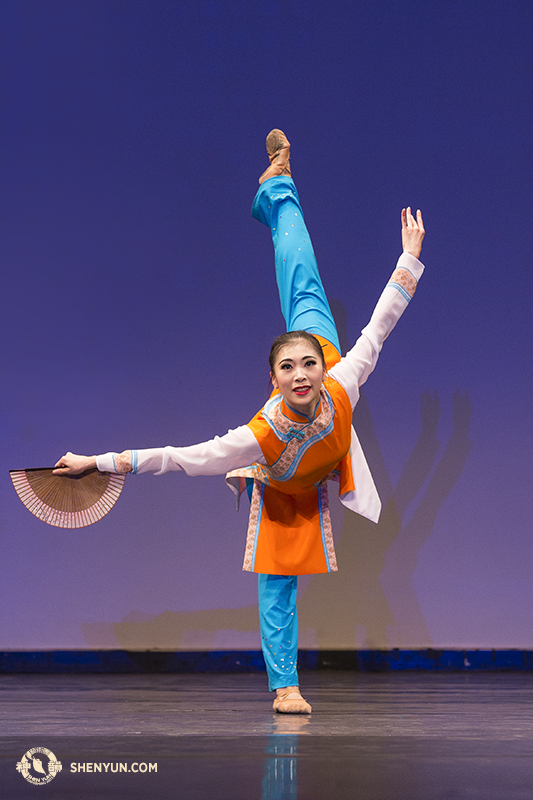
From TOL’s A Girlhood Dream
As a little girl, Shen Yun soloist Jane Chen couldn’t wait to earn a place in the elite world (and inside the incredible costumes) of classical Chinese dance. But to realize her dream and master the art form, she first had to understand that meaning comes before movement.
When Chinese phoenixes appear, good things are about to happen. They don’t emerge from flames, like Western phoenixes, and they don’t face death before making a triumphant rebirth. Legend has it that Chinese phoenixes descend quietly from heaven and make an appearance at the birth of a benevolent ruler, or at the beginning of a period of peace and harmony. They look a lot like Western phoenixes (sans flames), but the traits they embody are degrees apart: spiritual balance, beauty, grace, loyalty, honesty, all the virtues; they call people to a higher level of life, filled with peace, justice, prosperity and faith.
Now a soloist with Shen Yun Performing Arts, the world’s most elite group of classical Chinese performers, Chen choreographed a phoenix fairy dance for an international competition while she was still only a pupil.
Like the mythical birds themselves, Chen is quiet, regal, gentle, and delicate, buoyed by lofty thoughts as giant and silent as cumulous clouds.
A magic spark
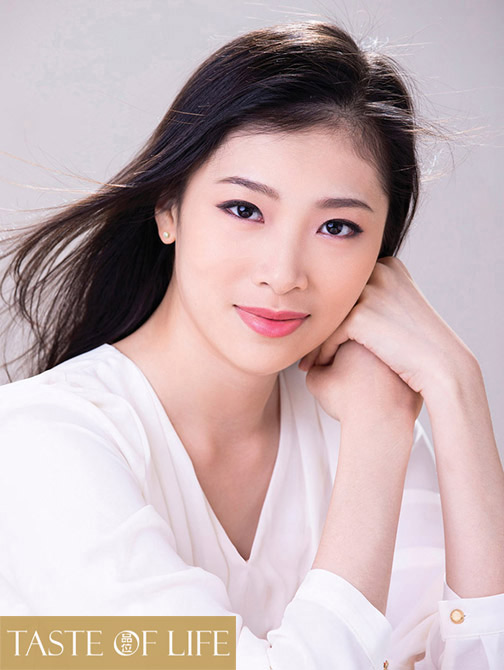
Chen grew up in Taiwan with her mom and dad and two brothers, playing rowdy and being a bit of a tomboy. She liked the physicality of boys’ play, and her athleticism laid a foundation for what was to come.
“It first occurred to me to learn dance when I saw a Shen Yun Performing Arts show in Taiwan. I was seven or eight years old and I didn’t understand how much of an art form dance is. I just felt that the dancers’ costumes were beautiful. I remember thinking it would be great if I could go onstage and dance in those costumes!”
Her parents soon realized that her mind was made up. Little Jane was serious about entering the rarified world of classical Chinese dance. With her parents’ encouragement, Chen set off on a track of rigorous after-school training and was later accepted into the prestigious Fei Tian Academy. After three gruelling but rewarding years at the Taiwanese campus, Chen felt her destiny with Chinese dance deepen. She took the test to join Fei Tian’s elite students at their headquarters in New York, the same campus where the professional dancers practice — and she passed.
But it was harder than she imagined at Fei Tian. The hours were longer, the stretching more painful and intense, she faced a fear of homesickness, and English was disorienting. But she overcame all of it by soaking in the traditional Chinese way of life they follow. The troupe’s practice of self-reflection, strengthening of moral fibre, and inner cultivation inspired her. Those things were top-of-mind during ancient Chinese people’s daily life, she learned, and a major part of how Shen Yun achieves its mission of reviving 5,000 years of civilization.
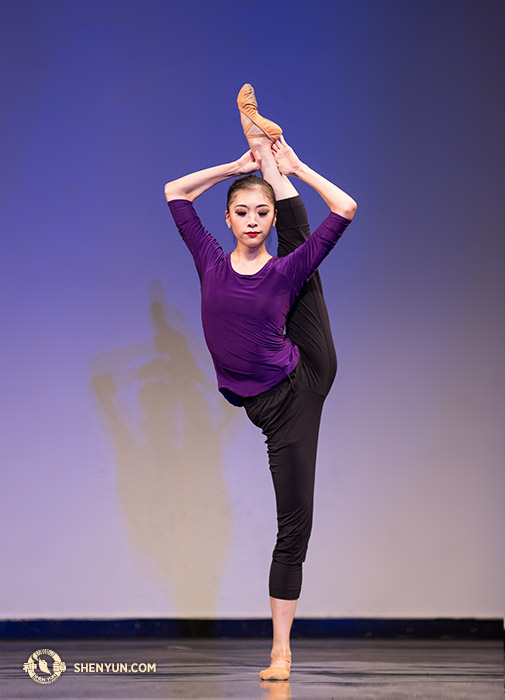
Interviewing Chen wasn’t easy; she isn’t a person of many words. But she opened up about a certain Taoist military strategist she learned about in her classes: Zhuge Liang in the story of ‘Three Humble Visits to a Thatched Cottage’ from Romance of Three Kingdoms. We were surprised. How does this quiet, delicate young woman relate to an ancient Taoist military strategist?
Here’s Chen speaking about the ancient episode: “The great general Liu Bei needed help from a military strategist and Taoist practitioner, Zhuge Liang. Twice the general travelled far and knocked on the Taoist’s door, and twice Zhuge avoided him. After Liu Bei visited again and waited a long time, the men finally met face to face. I could not understand why Zhuge acted like that. Was he very proud? But our teachers said, no, it’s not that. Ancient Chinese people with great abilities always chose a virtuous lord to serve. So Zhuge tested Liu Bei’s character by repeatedly avoiding seeing him.”
Chen relates to Liu Bei’s determination, and admires the great mind of Zhuge. And that’s partly what people feel when they’re moved by Shen Yun’s performances — the performers measure the purity of their spirits by stories like these as they set about mastering their art forms.
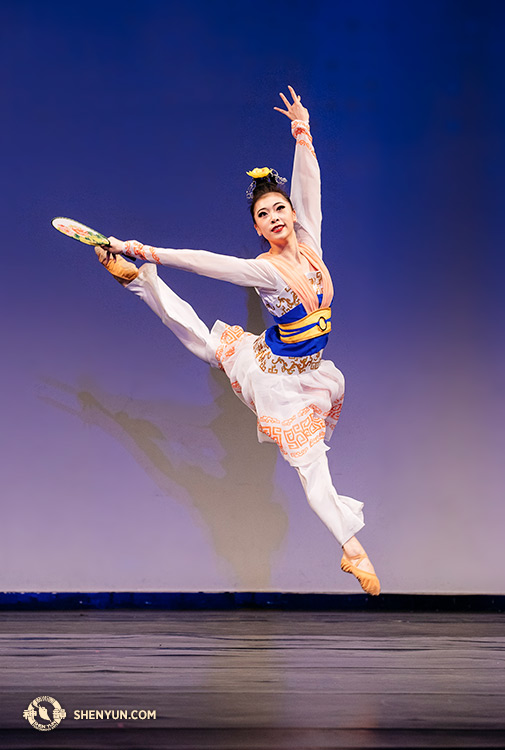
A dream come true
In 2014, Jane was selected to join the professional touring company, and went to the costume department to get measured for her very own set of gorgeously detailed gowns, skirts, and headpieces. The world tour took her to Taiwan, where she donned the costumes and danced on the very stage where she and her family first saw the show almost ten years ago. Those costumes!
Hundreds of Chinese citizens had travelled there from China to experience Shen Yun. The Chinese regime doesn’t welcome classical Chinese culture, and many Chinese report, sometimes with tears in their eyes, that a Shen Yun show is the first time they’ve seen true Chinese culture firsthand.
Chen’s favourite number to perform is “The Divine Renaissance Begins.” The performance is one of the final ones in the show, and represents the persecution of the Falun Dafa spiritual practice, a traditional form of meditation and self-cultivation from China. Buddhist in nature, the practice follows the principles of truthfulness, compassion, and forbearance. Around 70 million Chinese citizens enjoyed the discipline by 1999, according to official statistics — but its popularity led to a brutal persecution, which the dance depicts.
“I dance as a Falun Dafa practitioner who has been persecuted, hounded by the police, beaten with batons,” Chen said. Toward the end of the piece, divine beings appear to set everything right. At this point in every performance, “the entire [energy] field is compassionate and harmonious,” she says.
The piece shows wickedness meeting with retribution, and the mercy of higher beings. “Whenever I dance this part,” Chen says, “I can feel the infinite compassion of Gods and Buddhas, which moves me deeply.”
Taste of Life: A Chinese Phoenix


